There’s a visible trend rippling across the gaming industry today, and that’s a re-run back to the classics. In the past couple years developers had expanded countless beloved game series beyond what fans could stomach.
Recently, the majority of them are trying to return to the glory days of their past. Rather than continuing expanding, developers are starting to contract back to the core of what made their games so special. Titles like Battlefield and Call of Duty are just one of the fews. But today, we have another subject worth mentioning: The Anno series.
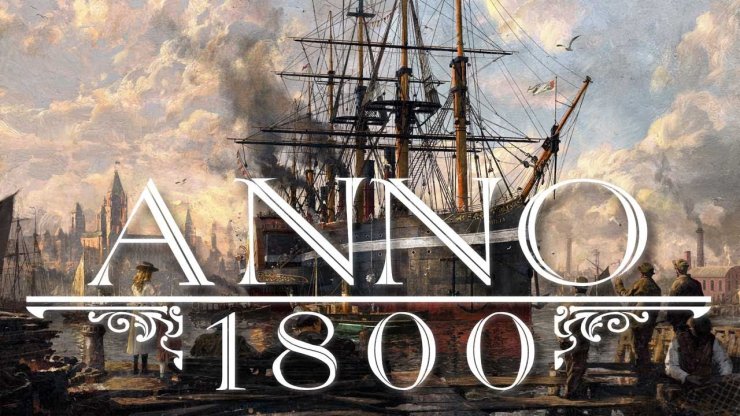
Good Old Days
The two-month old Anno 1800 is that time machine Ubisoft is trying to take to revitalise the series back to its former, greater years of the late 90s. Don’t get me wrong, the previous games of the series like Anno 2070 and Anno 2205 are both pretty good games. However, there were a couple of issues I had with them: The oversimplification and excessive streamlining of the game mechanics. And how the developers spun the combat mechanics of the game - something that should have been just as important as the city building and economic mechanics - into pretty much an afterthought and a secondary system.
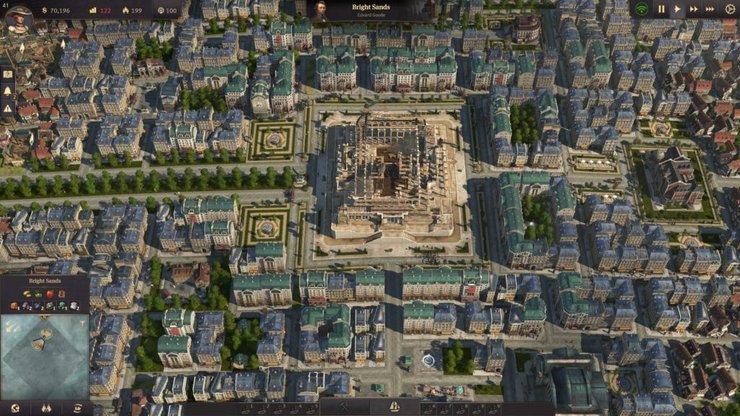
The lacklustre combat mechanic is the biggest gripe the Anno community in general had with the older iterations. But the streamlining, however, is a little bit more complicated. For me, personally, the streamlining is useful at first when you’re new to the game and have to learn about the gameplay and various new mechanics. But afterward when you’re already fluent in the game, a little bit more sophistication in the city planning and how every parts of your city fits together create the true entertainment in such a game.
For example, how every public services you have spent times arranging and investing into help support the local community, protecting and allowing businesses to grow to bring you back resources and money. That is a joyous sight, indeed.
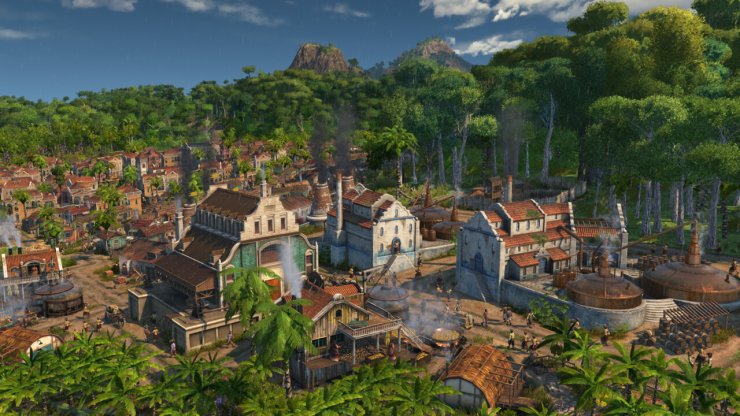
But it’s even more fun seeing your city expanded upon all of that initial resources and money as you make wise and strategic investments into various parts of your economy to improve public services, increasing the quality of your exported products. All of that fuel even further your treasury with extra income and resources as well as influence. The cycle just loop and loop until you have the perfect settlement of your dream.
And this cycle is the reason why before you even realise it, you had spent dozens of hours into the game already. Beginning from a humble start growing crops of potatoes to make alcohols, then increase the complexity of your production chains to include more advanced stuffs like cars. It is that sense of accomplishment you see when you realise hours later that the tiny village you started with has grown into a full-size city, with everything in it optimised.
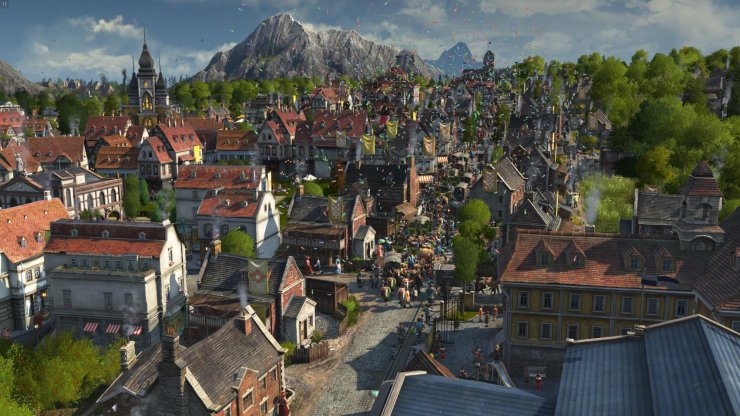
Growth And Expansion
Just like every other city building games, every time one of your structures meet all of the requirements, you would be able to upgrade them. But the needs of the people in Anno 1800 can be complex, and will require you to look beyond your starting islands to others due to the natural compositions of each islands. People may seek lands with better soil fertility or richer natural deposits, and it’s your task to give them what they need to thrive.

But once you have expanded, it’s necessary for you to start establishing trade routes to meet everyone’s needs to keep them all happy. The thing is that Anno 1800’s trading mechanic is straight out bad. Though it may look as if it is simple, it’s not: You have to manually move the resources you want between the colonies to create a chain of trade with various levels of complexity. It can be irritating since there are many more important things for you to focus on. It would be great if the trading system was automated.
There are parts of the game that are a little bit unintuitive. The income and expenditure reporting menu is rudimentary, providing you with only a few bits of information for you to use and plan ahead with. Basically, it tells you the income you get from each type of workers, an expenditure amount and an overall income situation with other sources of income. Dividends from the shares you bought in islands of opposing factions, for example, is an alternative source of income. Your faction can benefit from the operations and success of your opposition. And if you have built your treasury to a point that you can spend the surplus freely, you can buy up all of the shares and initiate a hostile takeover of the island without spilling a single drop of blood. I admit that’s a pretty neat feature.
Brave New World
The aim of the game, in reality, isn’t actually building the biggest and most extravagant city. Instead, it is all about expansion. Being set in the 1800s, you will find taking over the New World - South America - the chief goal in the game. Once you have moved to the New World, there are types of new plants and commodities you can produce and ship back to the Old World for consumption. Rum, is an example.
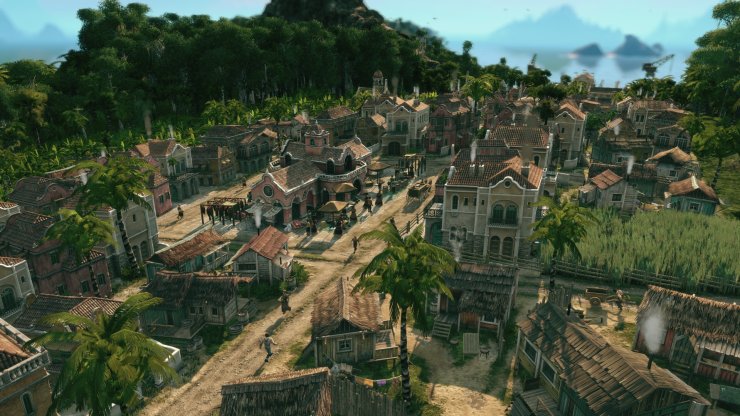
Actually getting to the New World can be an entertaining experience all in itself. Just from planning the voyage, to launching expeditions, then settling, the developers cover everything with unique gameplay elements to keep the process entertaining. When you launch an expedition, for example, you might face some narrations that prompt you to make a decision.
Your fleet is caught up in a storm, what do you do? Kneel and pray to God to get you through the seaborne chaos? Ride out the tempest by loosing sails, or crank up the steam engines? Each choice will reflect not only the success and failure of your expeditions, but also the morale of the crews and settlers as well as the resources consumed.
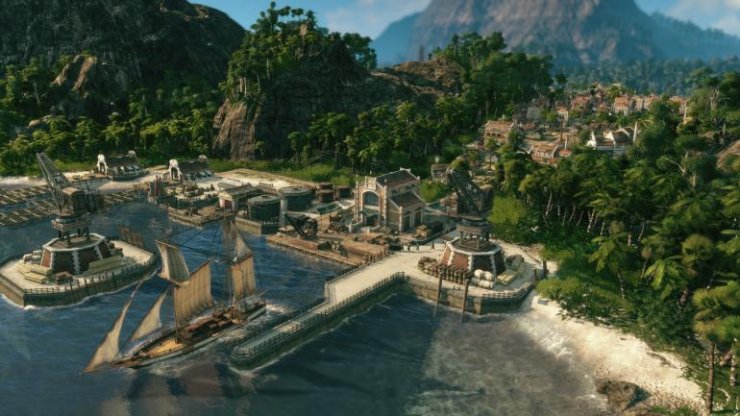
Your path to glory can be treacherous if you don’t have a sense for decisions. Of course, your expeditions have way better chance of succeeding if you set them up with good equipment and more quality crews. Ships - along with a couple unique buildings - have item slots attainable through trade or quests that can have special effects.
Still Got Flaws
The quests, however, were poorly done. From time to time you would be given a quest by random people in your settlement, but it’s not about building new infrastructures to keep them happy. Instead, it is mostly about zooming in and out to find a person or something hidden around the map or rounding up stray cattle.
You would think that being the leader of thousands of people would exempt you from all of the menial chores to get you to focus on more important things. Even quests given by other powers in the game can be frustratingly simple-minded: Picking up things in the harbour then ship back to them or to someone else. Though most of the quests do give you quite a lot of fundings, it was as if they didn’t even make an effort to make the questing more compelling and expansive.
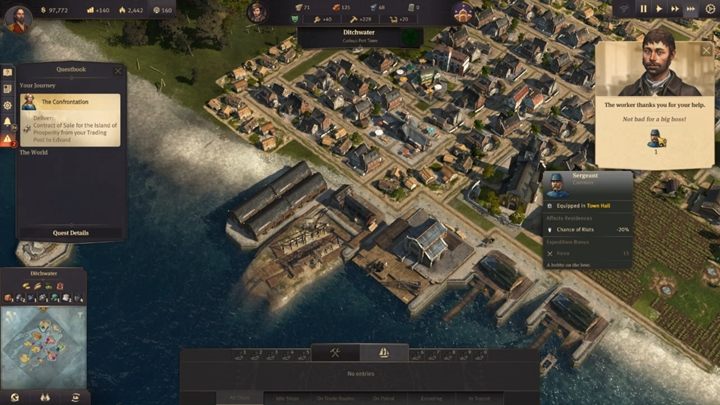
But these flaws don’t break the game for me. Instead, I still have to admit that Anno 1800 is a beautiful game, especially in the graphics and the details that the developers had put within. Each buildings look historically and visually authentic, and your towns actually look busy for once. People wandering the streets with animals close behind, carts rolling up and downtown delivering resources elsewhere.
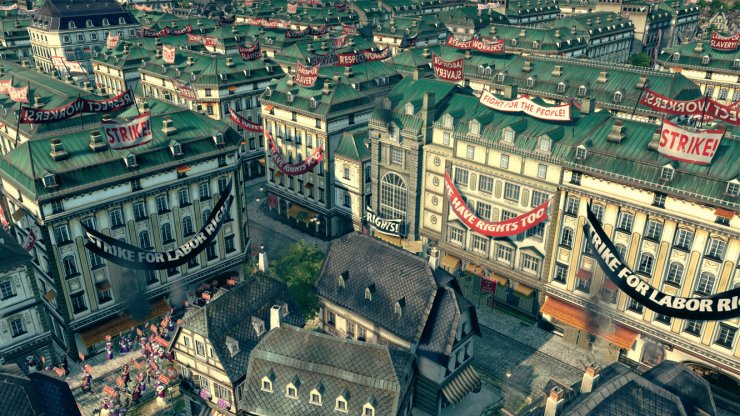
The sense of expansion and growth is palpable as your town moves from a couple of low tier buildings to become bigger and of better makes - fifth tier. Just by observing the people going about their business is already fun, and especially the interactions at the various facilities and buildings that keep the city on its feet. Pubs and marketplaces, zoos, and especially the ports. Ports aren’t just places where commerce occur and resources are moved back and forth from. It’s also where tourists arrive, people commuting between the islands.
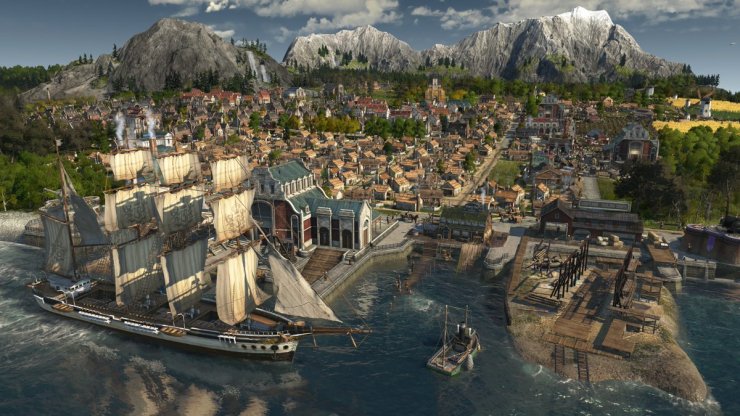
And there’s even a World’s Fair. Everyone loves World’s Fair. Even you, if you hang around and observe the festivities.
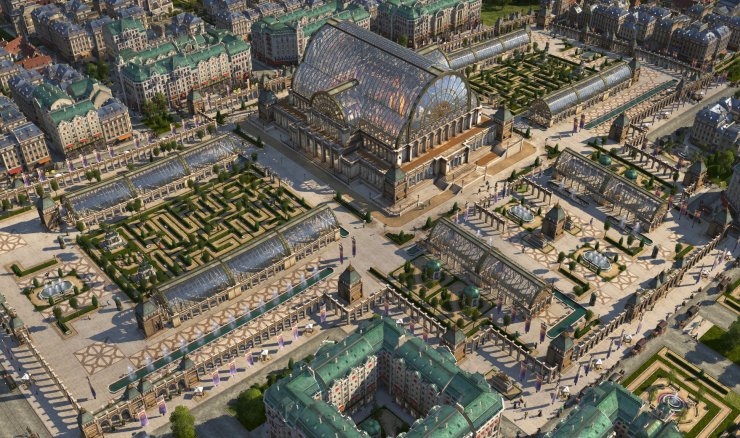
Fleshed Out Combat System
But at the end, we all have to come to this part: War. Combat. They have really fixed the system in this iteration of Anno. Unlike previous games, the combat mechanic seems more fleshed out, everything seems to be integrated with one another creating a seamless combat system.
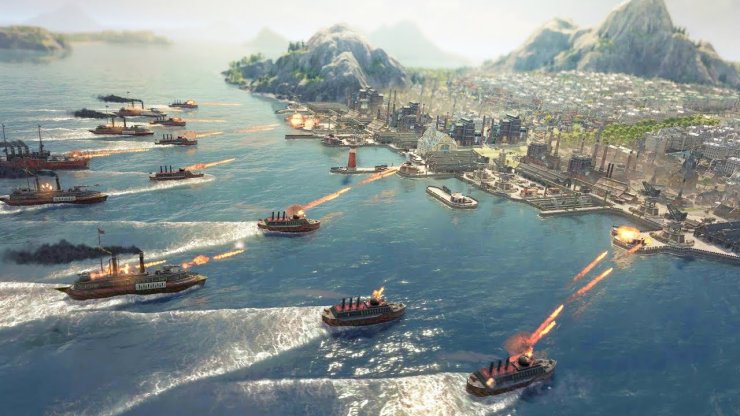
Say, you build a merchant ship with trading in mind, but once a war broke out, you can fully convert that merchantman into a flagship for your war fleet.
It is historically accurate: Merchantmen were often outfitted for combat and chartered for war in the 1800s. Even then, the tactical element behind the entire system isn’t very sophisticated, however, it is still more substantial than previous versions. Also, it gives you an incentive to equip your ships with armoured hulls and the likes.
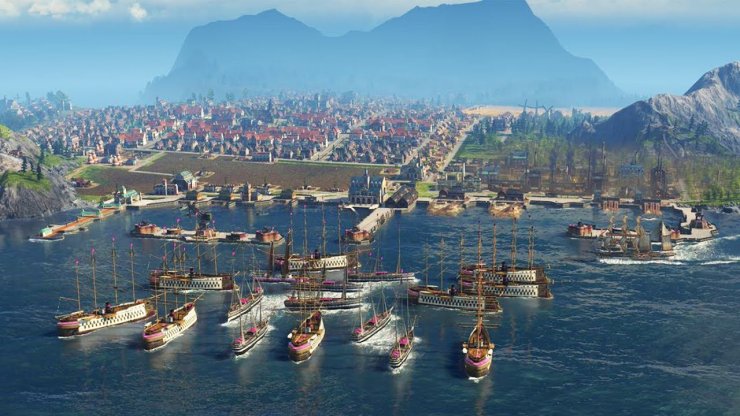
Overall
In conclusion, the game - despite its flaws - is very enjoyable to play. Thanks to great replay value and the level of attention to details that could keep you entertained for days on end, this is definitely a title you would enjoy if you’re deep into the strategic genre. Even when the futuristic Anno games are also great pleasures to play, this game was enough to satisfy what’s expected of it.

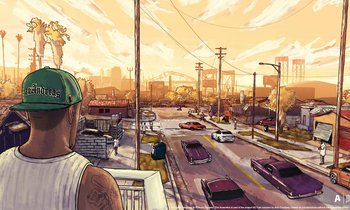








Comments